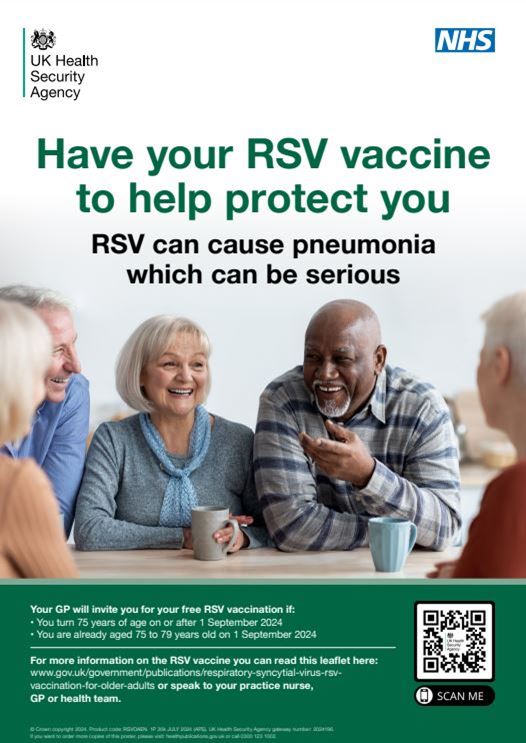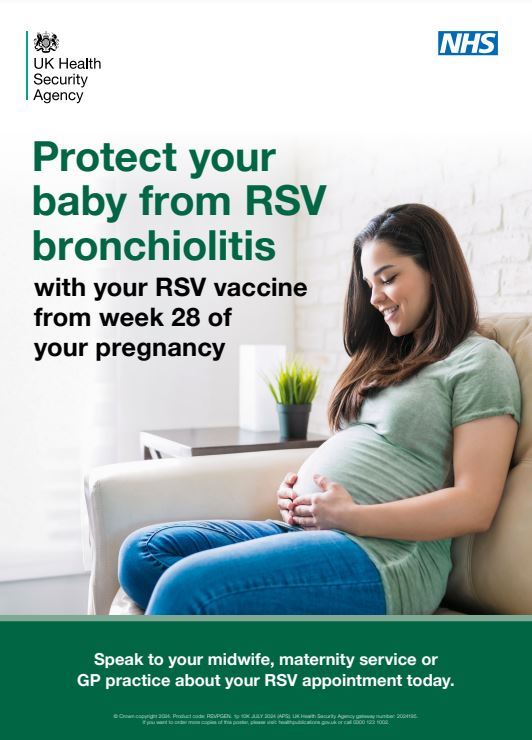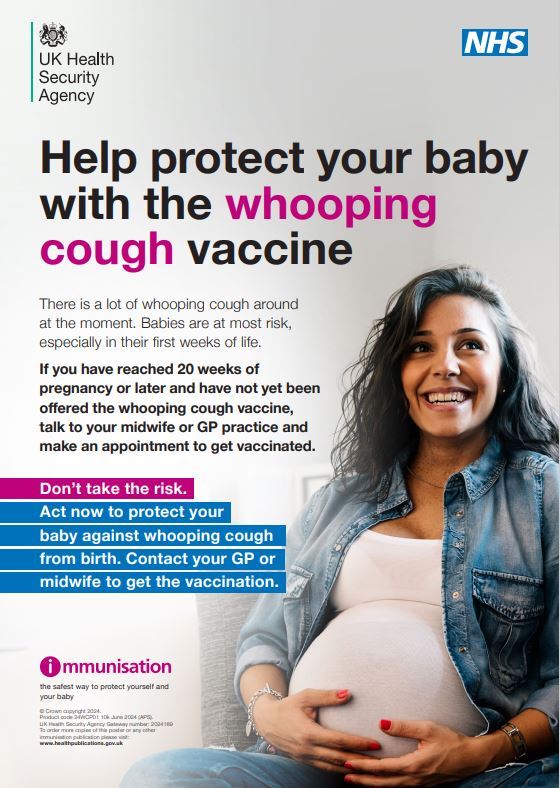Health
Respiratory Syncytial Virus (RSV)
Respiratory Syncytial Virus (RSV)
From the 1st September 2024 an older adults RSV programme has been announced, and we have started to contact patients who are eligable to have the vaccine in the surgery.
What is this virus and why is this recommended?
Respiratory syncytial virus is a common cause of acute respiratory tract infections which are usually mild and self-limiting. The virus is transmitted via respiratory droplets (coughing, sneezing), through close contact with an infected person or contact with contaminated surfaces. Symptoms usually include runny nose, cough and fever. For infants, and older adults, the virus can lead to more severe illness and hospitalisation.
All adults turning 75 years old on or after 1 September 2024 will be eligible and should be offered a single dose of the RSV vaccine on or after their 75th birthday.
Is this a one off programme?
There is no current plan for RSV to be an annual vaccination, and there is not currently any data to support second doses in older adults.


Why do we need to protect babies from RSV?
Respiratory syncytial virus or RSV is a common virus which can cause a lung infection called bronchiolitis. In small babies this condition can make it hard to breathe and to feed. Most cases can be managed at home but around 20,000 infants are admitted to hospital with bronchiolitis each year in England. Infants with severe bronchiolitis may need intensive care and the infection can be fatal. RSV is more likely to be serious in very young babies, those born prematurely, and those with conditions that affect their heart, breathing or immune system. RSV infections can occur all year round but cases peak every winter.
When should I get vaccinated?
You should be offered it around the time of your 28 week antenatal appointment. If you haven’t heard by this stage, contact your maternity service to make an appointment.
Having the vaccine in week 28 or within a few weeks of this will help you build a good level of antibodies to pass on to your baby before birth. This will give your baby the best protection, including if they are born early.
Whooping Cough

Whooping Cough Vaccine
Whooping Cough Information
Whooping cough (pertussis) cases continue to increase and babies who are too young to start their vaccinations are at greatest risk. Whooping cough can be serious for babies and may lead to complications resulting in hospitalisation and even death. Sadly, there have been 9 infant deaths since the current outbreak began in November last year (one in December 2023 and 8 between January to end May 2024).
If you are pregnant, you can help protect your baby by getting the whooping cough (pertussis) vaccine at your registered doctors surgery. The vaccination during pregnancy boosts your antibodies which are then passed to your baby to help protect them from the day they are born.
You will normally receive your whooping cough vaccine around the time of your mid-pregnancy scan (usually 20 weeks) but you can receive it from 16 weeks. If you have reached 20 weeks of pregnancy and have not yet been offered the whooping cough vaccine, please ask your midwife or GP practice. Also these are provided through antenatal clinics.
Vaccination in pregnancy provides very high levels of protection against serious whooping cough disease to your baby at least until they can have their first vaccine at 8 weeks of age. It is recommended in every pregnancy to boost the antibodies you pass on to your baby.
To give your baby the best protection, you should try and get the vaccine before 32 weeks but if you have missed out you can still have it later. You can even have it after you give birth, to reduce your risk of spreading whooping cough to your baby.
You can also check your child is up to date with their childhood vaccinations, including whooping cough, and if they have missed any they can catch up at their GP practice at any time.
Talking Therapies
Here are some information regarding help and support advise and guidance either regarding your mental health, emergency contact details etc. Please see the link here for more information - Talking Therapies
Page created: 16 December 2021